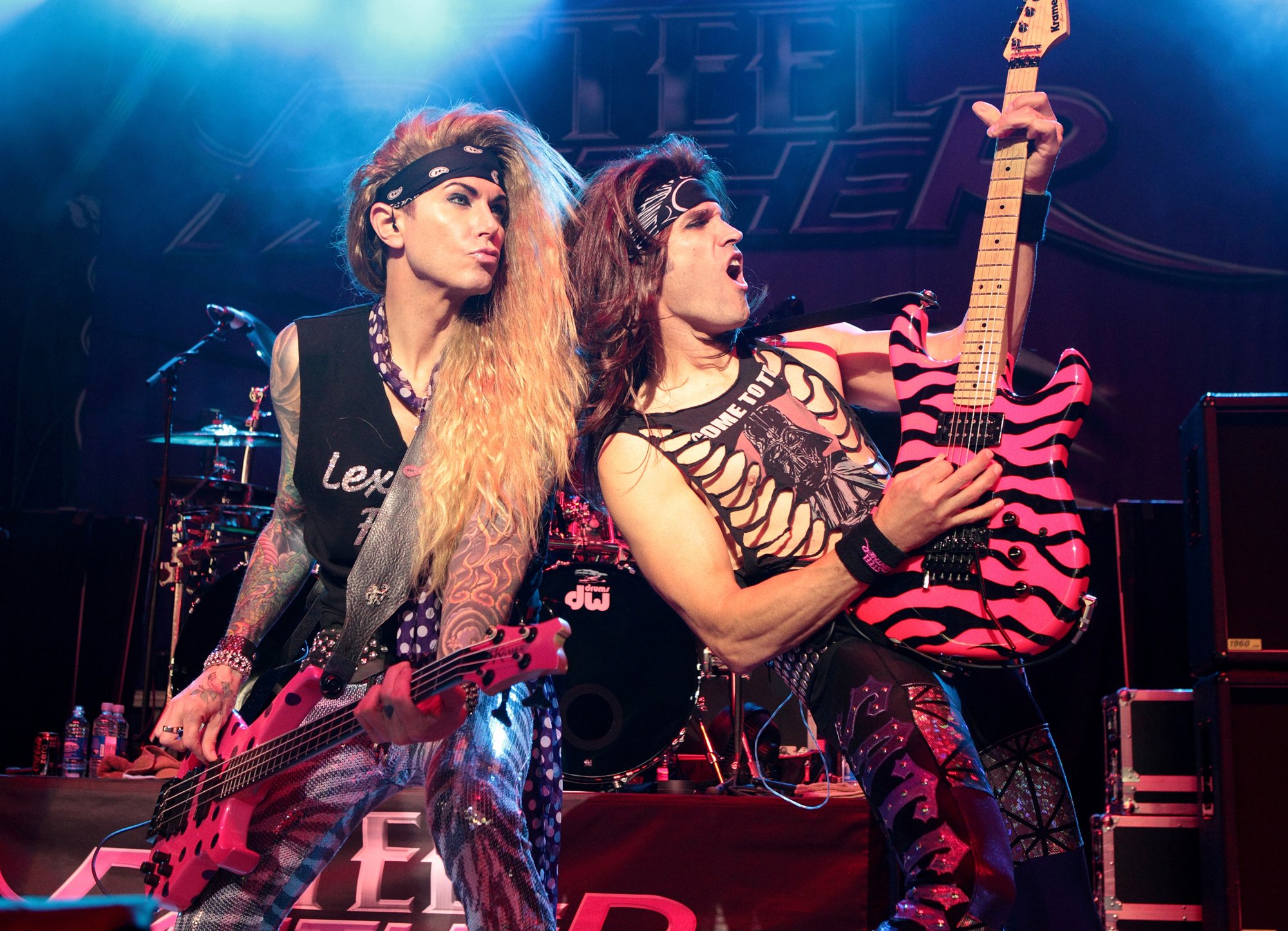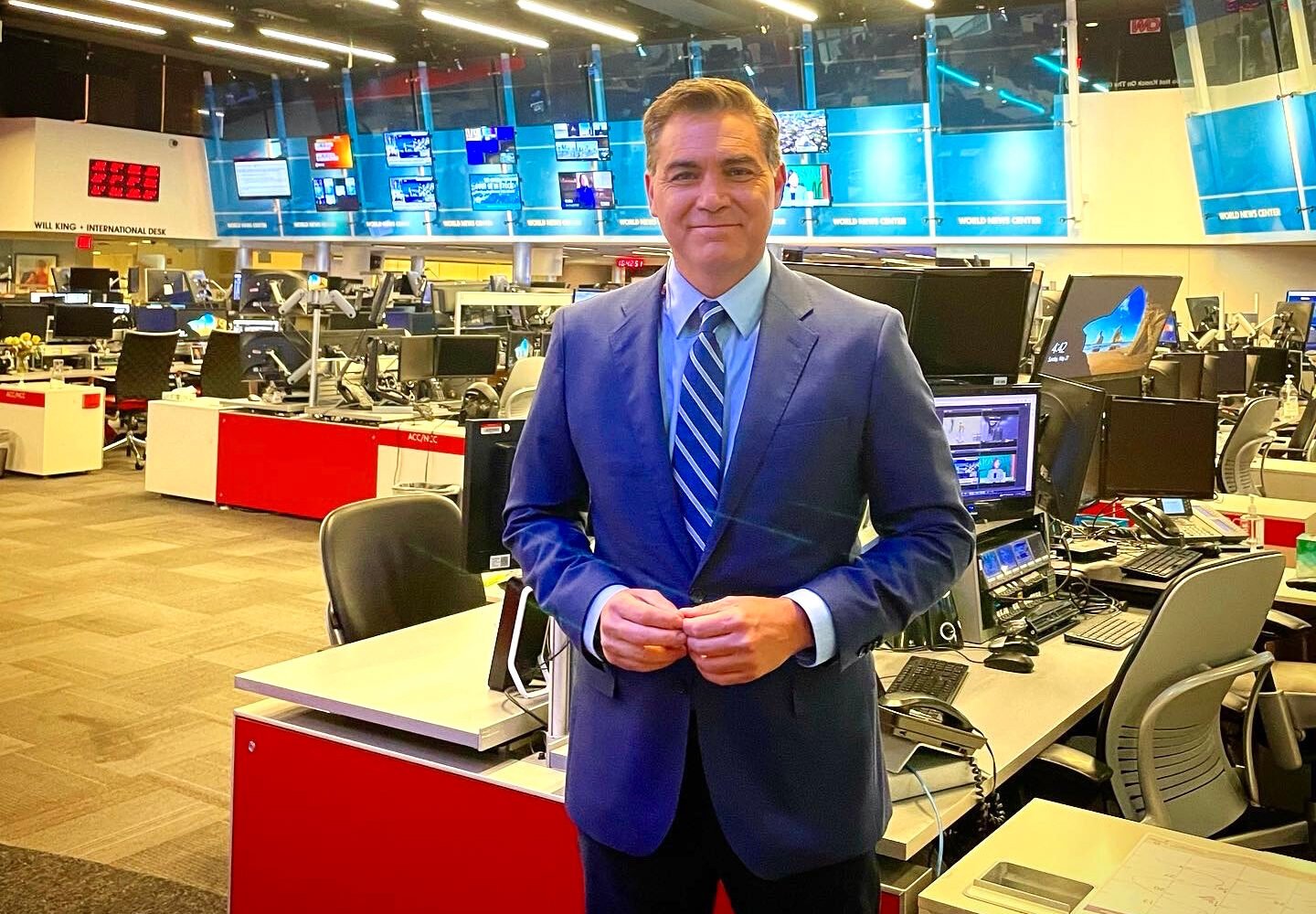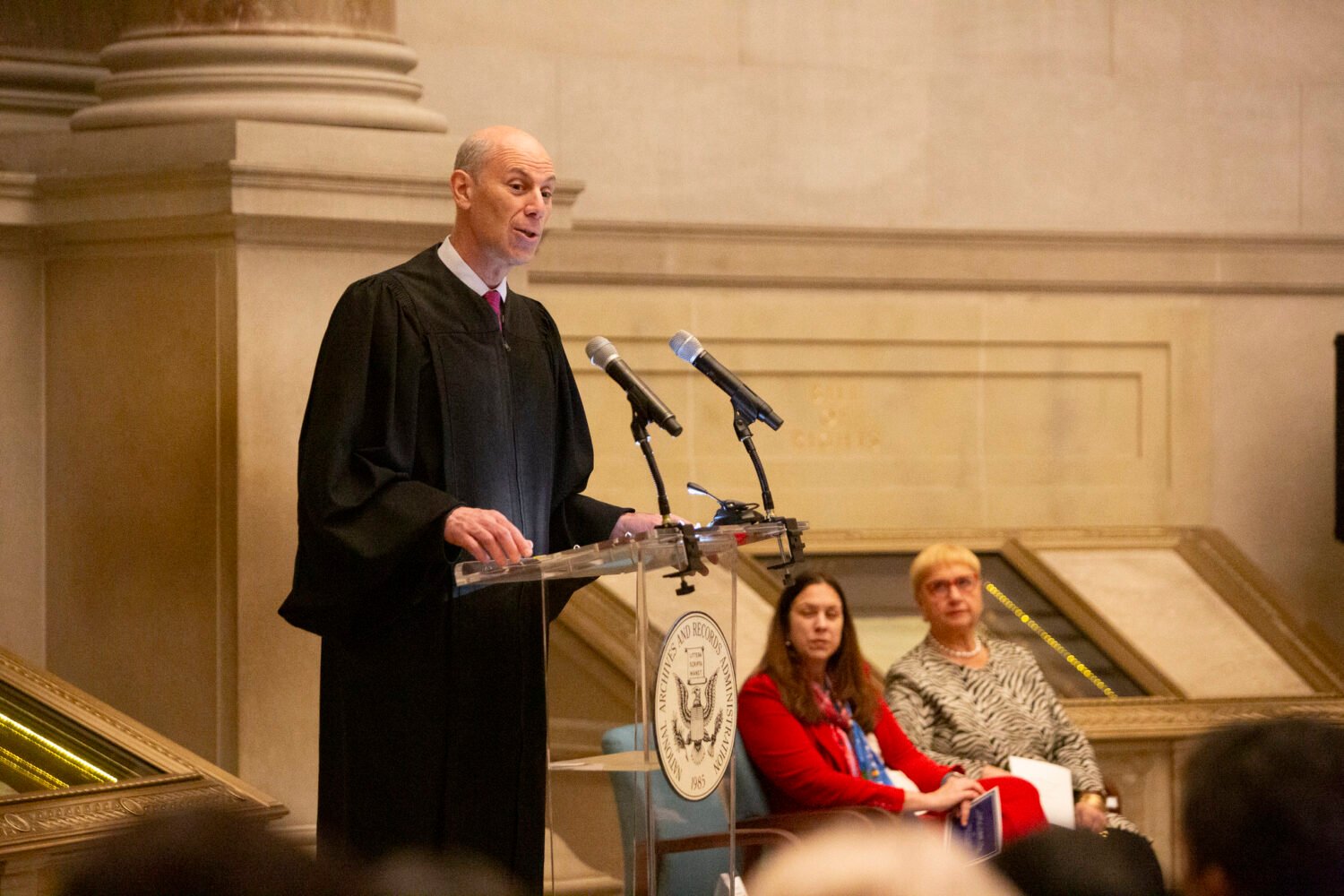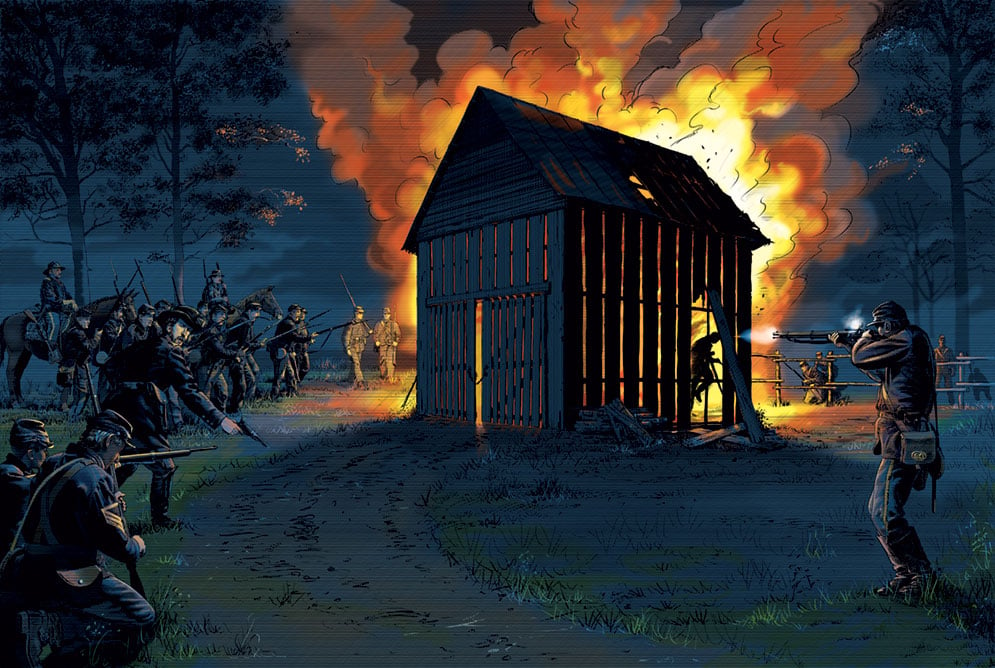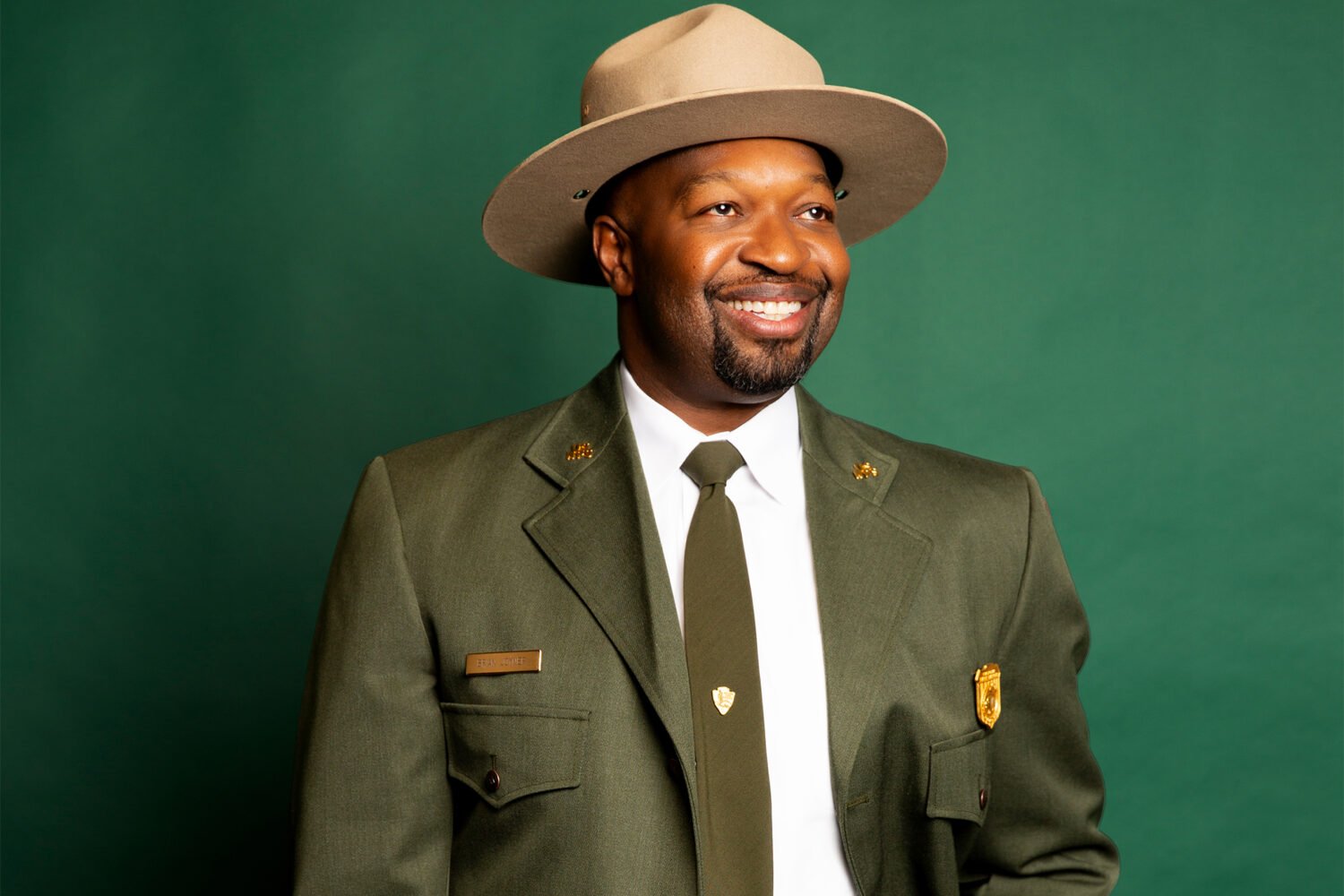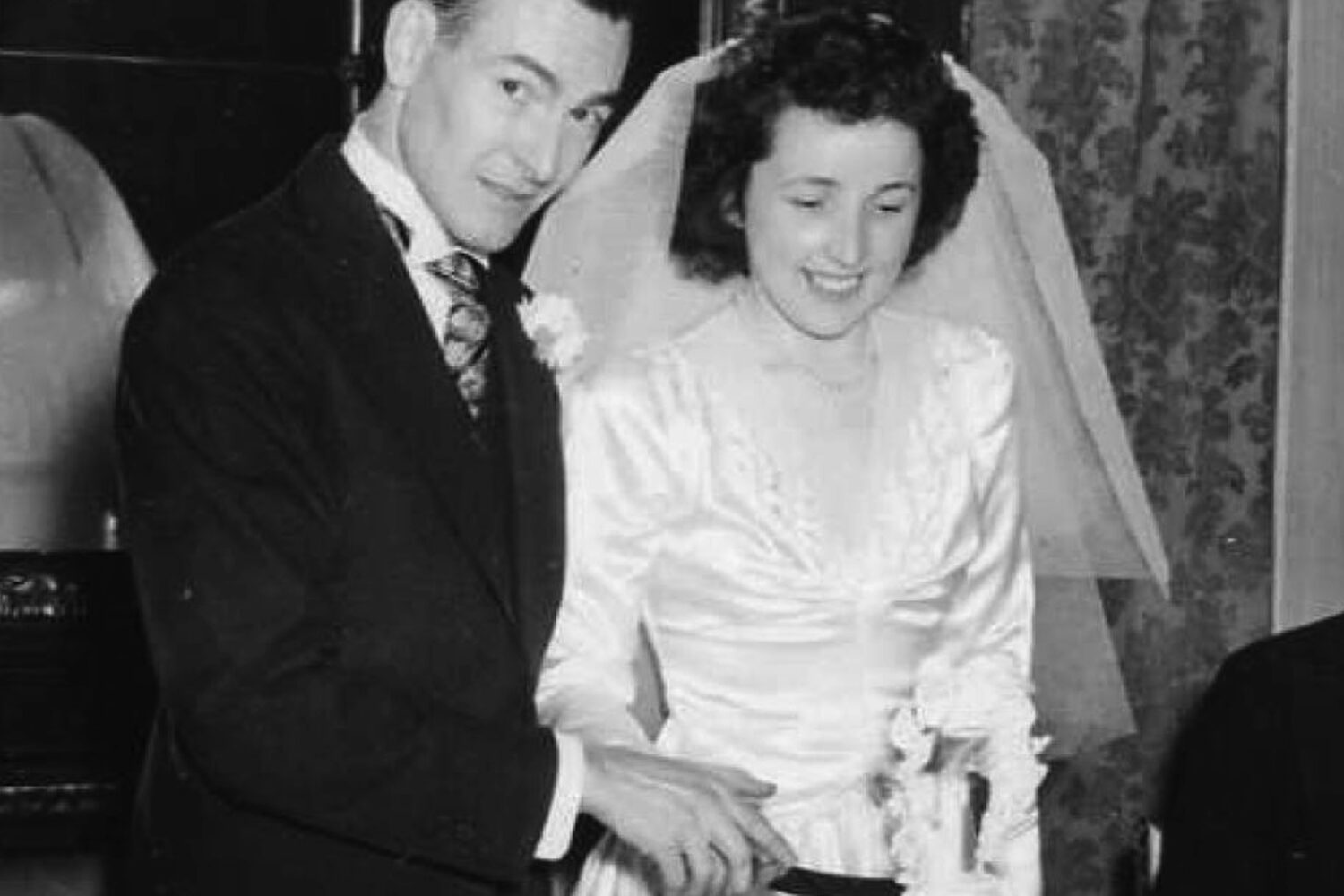Brad Canfield admits he isn’t much of a metal fan—his tastes tend toward alt-rock, not Mötley Crüe. Though he runs one of the area’s top music venues, Merriweather Post Pavilion, his vibe is pretty dadcore: One recent afternoon, he was decked out in khaki pants, Brooks running shoes, and a Tommy Bahama pullover. Ask him to identify any random heavy-rock track from the ’80s and he jokes that he’ll basically always guess Whitesnake. So how did this guy create one of the country’s most prominent retro metal fests?
It started back in 2008, when Canfield was looking for a way to juice ticket sales during the typically slow month of May. He hit on the idea of a festival that would cater to an underserved music community of some sort, and he started running through genres in his head. Country? Blues? What about hair metal? Bingo. M3 launched the following May with a bill full of Aqua Net–rock veterans, including headlining sets from Twisted Sister, Ratt, and Extreme. The name referred to the month (May), the genre (metal), and the venue (Merriweather Post).
The first M3 wasn’t a sellout, but the fans who came seemed to love it. The next year, sales were brisker, and things took off from there. Now, 14 years later, M3 is a two-day affair, with hair-metal fanatics spending as much as $875 on VIP packages that let them meet their heroes. The event attracts nostalgic metalheads from around the country and even internationally; couples have actually gotten married onstage. The lineup for this year’s fest—to be held May 6 and 7—reads like a lost episode of Headbangers Ball: Warrant, Winger, Great White, Lita Ford, Slaughter, Quiet Riot, Vixen, and lots more.
M3 has now blown up into a sort of Lollapalooza for the poufy-haired power-ballad set, offering solace for anyone who believes real rock died back when Nirvana exploded in the early ’90s. You will encounter double bass drums and Marshall stacks, bandannas covering bald spots and various ill-advised uses of leather. You are virtually guaranteed to hear “Cherry Pie” and “Once Bitten, Twice Shy.” And you will inhale not the slightest whiff of anything that smells like Teen Spirit. “The crowds are tuned in to the bands they used to love,” says Steve Whiteman, the frontman for local legends Kix, who are co-headliners this year. “This music got blackballed for about ten years, and then people finally got tired of the grunge thing. They said, ‘You know what? That stuff from the ’80s is pretty damn good.’ ”
If you really want to understand the story of M3, you have to begin with Kix. Formed in Hagerstown in the 1970s, the band then scored a deal with Atlantic Records. They went on to only moderate national fame, but Kix was huge in our area—Maryland’s Mötley Crüe, the DMV’s Def Leppard. After hair metal fizzled out in the early ’90s, the band called it quits. Whiteman got involved in other music projects and earned money giving voice lessons, but his days as a rock star seemed done.
Then, in the early 2000s, most of the group reunited and started playing around Maryland again. In terms of national interest, “I didn’t think anybody really gave a shit about Kix,” says Whiteman. But one day he got a cold call from a guy named Sullivan Bigg, a booking agent in Southern California who represented Great White and other ’80s rock acts. Bigg made a pitch: People still dig Kix, and the band could be performing around the country. “I thought he was out of his mind,” Whiteman recalls. “I was giving him all the reasons it was not a good idea. The next day, he calls again. He was relentless.” Bigg kept at it, and just to get him to stop, Whiteman finally said okay. Bigg soon came back with offers from a couple of rock festivals. Kix has been playing around the country and internationally ever since.
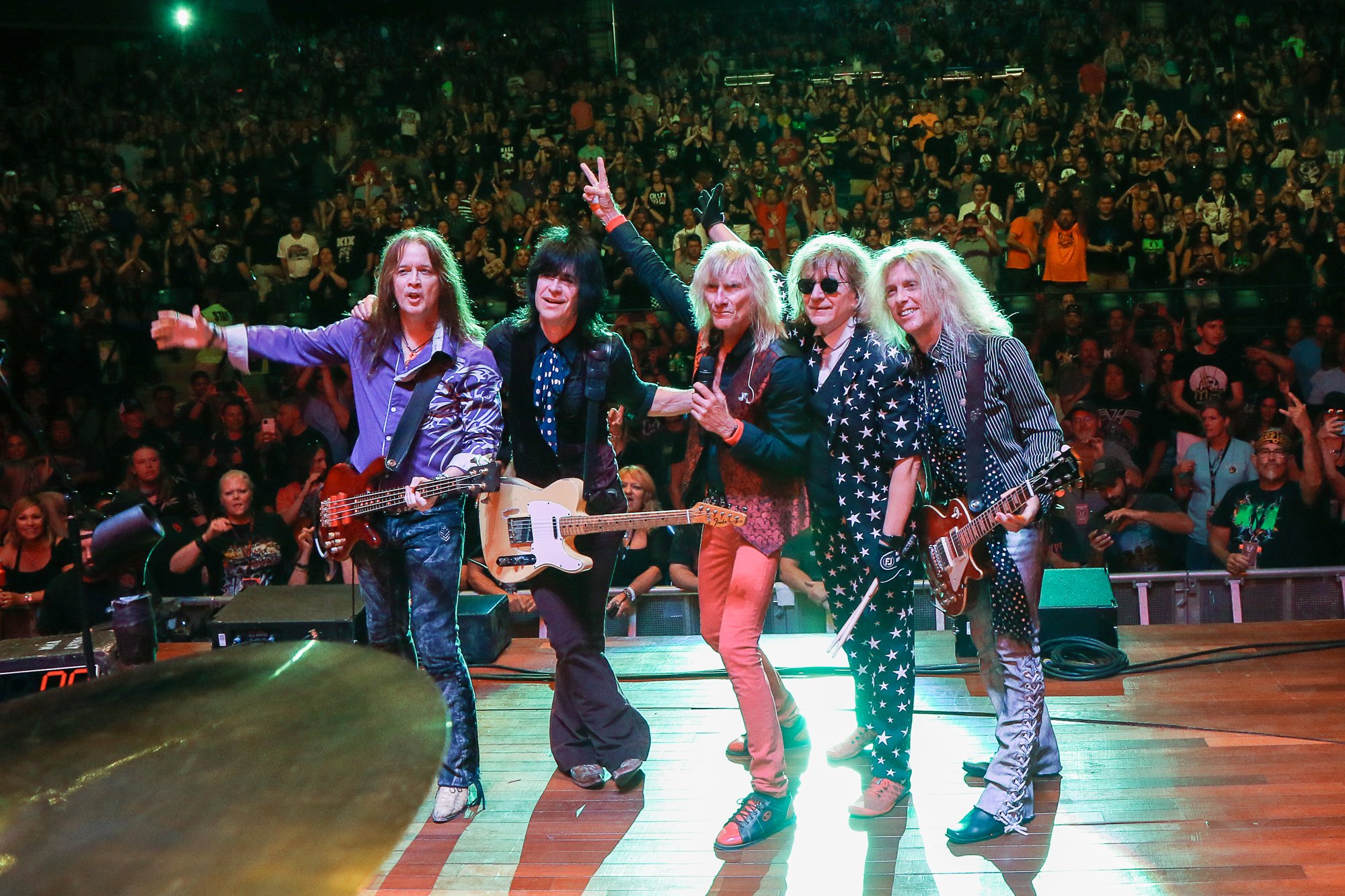
After Canfield hatched M3, his first thought was to book Maryland’s most famous ’80s metal act. He and his team found Bigg and reached out. Kix was in—plus Bigg had access to more than a dozen other acts, which made putting together that first year’s bill much easier.
Today, Bigg has come aboard as one of M3’s organizers. (The third member of the core team is LA music exec Eric Baker.) “They look at me kind of like the Yoda of ’80s rock,” says Bigg. “I mean, this is my whole life.”
This year, nine of the bands on the bill belong to Bigg’s agency. “The posters on my bedroom wall when I was a teenager are now the clients I represent,” he says. “My parents thought, you know, ‘He’ll become an adult and grow out of all that adolescent crap.’ Isn’t it funny that it went on to dominate my life?”
Let’s pause here, briefly, to contemplate some philosophy. Are you familiar with Theseus’s paradox? It’s a famous stumper of a thought experiment that involves a ship made out of wood. Over time, various parts need to be replaced, and eventually not a single original piece remains. Is it the same ship? If not, when did it become something new? And if you build a second craft using the discarded pieces, which one is the “real” ship? (Also worth pondering: Why has there never been a metal band named Theseus’s Paradox?)
Flipping through M3’s lineups over the years inevitably conjures these kinds of conundrums. There are virtually no bands that still exist in their most famous incarnations, and M3’s advertising is full of careful language: “Steven Adler of Guns N’ Roses,” “Stephen Pearcy (the Voice of Ratt),” “Mike Tramp of White Lion.” This year, Quiet Riot will appear with just one member of its best-known lineup, bassist Rudy Sarzo; frontman Kevin DuBrow died in 2007. Great White, meanwhile, will be playing without original singer Jack Russell. Where is he? Out performing with his own band, Jack Russell’s Great White.
None of this is a big deal, M3’s organizers insist. “I mean, every single band on my roster has non-original members,” says Bigg. “We have found, at least from a business perspective, that it’s all about the name and the brand. Because most people don’t care! Of course, there is a handful of purists that get their panties up in a twist because certain original members aren’t there. But the majority? They just want to hear the songs.” Behind the scenes, though, things can get messy, and Canfield says they’ve received cease-and-desist letters from rival versions of a band claiming M3 had booked the wrong one. (“We’ve done our homework and know who’s got rights to the name,” he says.)
Just look at L.A. Guns. In a twist that would likely excite philosophy profs, there are currently two entirely distinct versions of the “Ballad of Jayne” band. The one at this year’s M3, Riley’s L.A. Guns, features longtime drummer Steve Riley and bassist Kelly Nickels but not guitarist Tracii Guns or singer Phil Lewis; they perform as L.A. Guns. M3 stopped working with the latter iteration after they pulled out of the 2018 fest at the last minute, apparently due to a conflict over their time slot. The following year, Riley’s version played instead. Tracii Guns and Phil Lewis later sued over use of the name. The two sides settled in 2021, agreeing that Riley would go with Riley’s L.A. Guns.
But you can’t always tell from the moniker who’s in an M3 band. Skid Row—who played at last year’s M3—soldiers on sans Sebastian Bach, and Bigg’s roster somehow includes both Stryper and “Michael Sweet: the Voice of Stryper.” “With the amount of partying that happened in the ’80s, there’s a lot of splintered bands,” says Canfield. “We’re just finding out which version of the splinter makes the most sense for us.”
By 2018, M3 had established itself as a major event for the sleeveless-jean-jacket crowd, and the organizers were gearing up for the tenth festival, featuring headliners like Queensrÿche and “Cinderella’s Tom Keifer.” Until, unexpectedly, everything came crashing down—or rather, the roof did.
Merriweather Post Pavilion originally opened in 1967, built as a summer home for the National Symphony Orchestra. It expanded its programming the following year, and the list of performers who followed is jaw-dropping: Janis Joplin, Jimi Hendrix, Joni Mitchell, history’s only double bill of the Who and Led Zeppelin, and hundreds of other huge names. The distinctive wooden structure was designed by Frank Gehry—one of his earliest works.
Canfield has been working at Merriweather Post for decades, and over the years he accumulated a list of improvements he wanted to make: a luxurious structure for offices and artist accommodations, upgraded infrastructure, expanded seating. In 2016, he kicked off a $60 million project to revamp the venue. Part of it involved lifting the roof by 20 feet, which would improve sightlines from the lawn.
On January 13, 2018, hydraulic jacks were in place and the structure had been boosted, but nothing was permanently secured. Bad timing: High winds blew through overnight, and the gusts proved too much for the temporary setup. There was a flash and a dust cloud—the entire roof pancaked onto the seats below.
Nobody was hurt, but the accident posed a dire threat to Merriweather’s concert season, set to kick off with M3. Was there any chance they could rebuild in time? “Everyone’s like, ‘It’s impossible,’ ” says Canfield. “I heard that and I’m like, ‘Challenge accepted.’ ”
Crews worked around the clock for months, and it was a mad sprint right up to the afternoon of M3. In the end, they pulled it off. Kix opened its set with an apt track: “Can’t Stop the Show.”
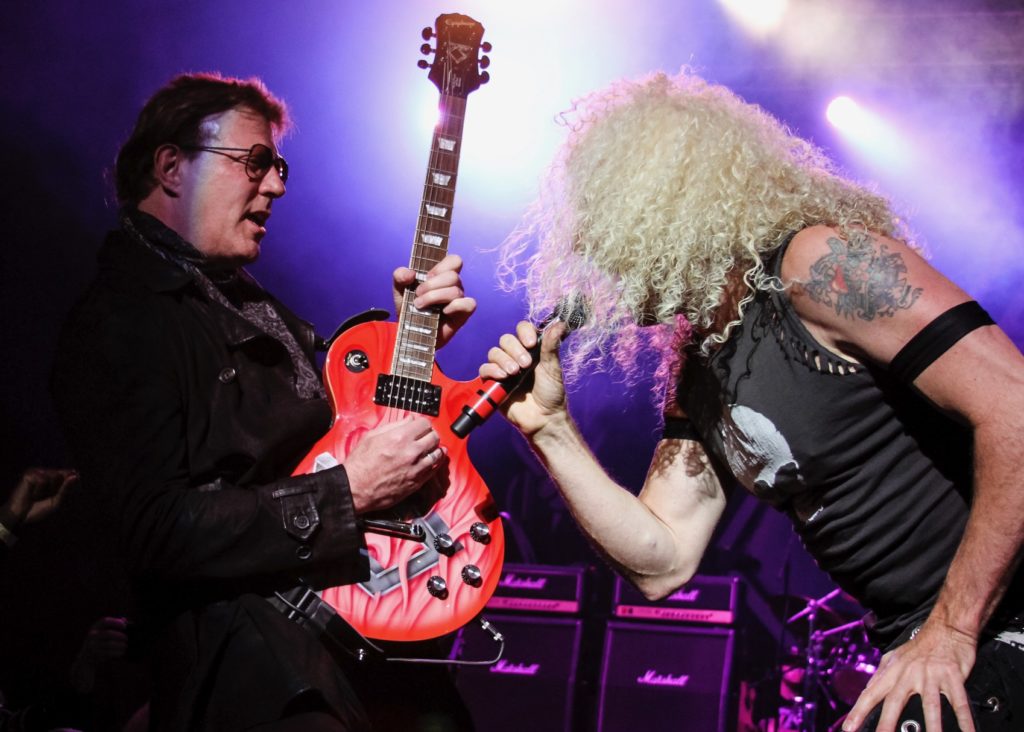
That year also marked the debut of Merriweather Post’s revamped stage. Its most distinctive feature is a rotating center platform meant to make festivals like M3 run more smoothly. A band can set up on the back side of the platform while another artist plays, and then at the end of their performance, the whole thing rotates. That eliminates those maddening gaps between acts. Actually, it has proved too effective. “We were getting complaints, so we do a ten-minute break so people can get up,” says Canfield. “We realized that people need to pee.”
But even with these improvements in place, M3 is a logistical challenge. Metal bands aren’t known for their modest equipment, and wrangling all of that falls on the shoulders of Drums Unlimited, a big instrument-rental facility in College Park. Equipment lists start coming in a month before the show, says owner Michael Toperzer, and putting it all together takes careful planning. The requests are highly specific: Slaughter needs a Pearl drum set with two 22-inch bass drums and Zildjian cymbals, while Lita Ford prefers a DW kit with a 24-inch bass drum and Sabian cymbals.
And don’t tell anyone, but much of it is just for show. When you see massive rows of amps, usually just one of them is actually connected to anything. “There’s a lot of smoke-and-mirrors stuff,” says Toperzer. He likes to tell the story of one M3 band—sorry, no names—that brought what looked to the audience like a ginormous wall of ear-melting amps. In reality, it was just a fabric scrim with rows of Marshall logos attached to it.
As part of Merriweather Post’s big revamp, an 800-square-foot outdoor swimming pool was added backstage for artists to splash around in. It’s a thoughtful amenity—the venue has heard that Jimmy Buffett is a fan. But the idea of hair-metal bands hanging around a pool inevitably conjures images of ’80s excess, like that infamous scene in The Decline of Western Civilization Part II in which W.A.S.P.’s Chris Holmes sprawls on a pool chair while guzzling Smirnoff.
Well, there is bad news on the debauchery front: M3 is apparently pretty tame. “I mean, I haven’t seen, like, lawn chairs going in the pool,” says Bigg. “Everybody thinks that ’80s rock is still about drunk debacles and insane drama. You’ve got to remember, these guys are older now. They are there to do a job.” Sure, the tequila gets passed around, but you’re more likely to encounter tattooed crooners huddled around the backstage piano for an impromptu sing-along. “You know, we all had fun dabbling in this and that back in the ’80s, and it got wild and it was a lot of fun,” says Steve Riley, who was actually Chris Holmes’s bandmate in W.A.S.P. before joining L.A. Guns. “The ones that made it through cleaned up their act. If you want to have any longevity in this business, you can’t be that wild child anymore.”
Everybody thinks ’80s rock is still about drunk debacles. You’ve got to remember, these guys are older now.
The same goes for the fans, of course. Hair metal’s original audience is decidedly AARP-eligible at this point, and M3 is more about camaraderie than depravity. “It just has a sense of family and community,” says Sullivan Bigg. “To a lot of people, M3 has become a pilgrimage, like Parrotheads who like Jimmy Buffett or Deadheads who like the Grateful Dead. These people plan it out months in advance, and eight of them get in a car and travel 600 miles.” Alas, these avid devotees don’t have a name. Maybe they should call themselves Hair-heads.
But, look, nobody can headbang forever. M3’s organizers are aware that the audience is getting up there—as are the performers—and while young fans do also attend, the long-term prospects for this endeavor aren’t great. Bigg sees the festival as a last, lingering bastion of a once-dominant style of music that still, despite everything, matters to a lot of people. “This genre needs M3,” he says. “Eighties rock is enjoying a good time right now. But in a handful of years, it could be over. I love this music. It’s dominated my whole life and given me a successful career. And M3 is one of the very last pure ’80s-rock festivals anywhere. But when the audience stops buying tickets, it’s over.”
As long as those fans keep coming, though, the bands will still be there trotting out their hits. “You know, if it don’t stink, don’t shit on it,” says Kix’s Steve Whiteman. “I don’t even know what that means.” He laughs, perhaps recognizing that he sounds a bit like a member of Spinal Tap. “We’ll just do what we do. It seems to work.”
This article appears in the May 2023 issue of Washingtonian.

